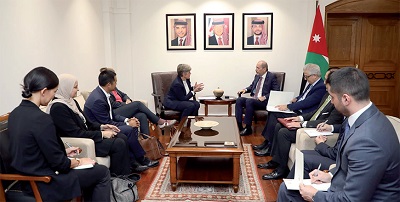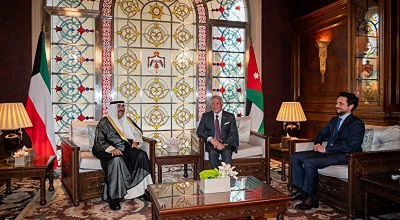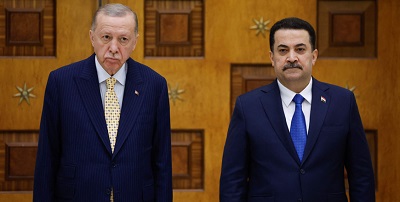National Framework for Gender Sensitive Public Transport launched
The Jordan Times
AMMAN — The National Framework for Gender Sensitive Public Transport was launched on Monday during a virtual press briefing.
Advocacy group SADAQA and the Ministry of Transport, in cooperation with the European Union’s (EU) Delegation to Jordan and UN Women, officially launched the National Framework for Gender Sensitive Public Transport that aspires to enhance reliability, safety and accessibility of public transport for women, and enhance women’s economic participation.
“During the current difficult economic situation, it is crucial that we start to think about solutions to support women’s access to economic opportunities by improving mobility, and by ensuring safer and low-cost public transport,” Secretary General of the Ministry of Transport Wissam Tahtamouni said during the briefing.
Tamar Tavartkiladze, programme manager at UN women, said; “The objective of the framework was to enhance partnership with all stakeholders in order to develop a national system made for gender sensitive public transportation with clear roles, responsibilities and monitory indicators.”
“This framework will aim to close the gender gap in public transportation, which will enhance women’s needs and priorities and will enable their economic, social and political empowerment,” Tavartkiladze said.
According to Corinne André, head of Cooperation at the EU Delegation to Jordan: “Gender equality and women empowerment are at the heart of EU cooperation programmes, especially in crisis contexts.”
André noted that in Jordan, economic empowerment has been a prominent and imperative aspect of many EU-funded programmes, in particular under the EU regional Trust Fund in response to the Syrian crisis, covering the needs of the most vulnerable as well the needs of refugees.
“As EU we stand by this significant framework and we hope that it will generate progress for women’s empowerment through the decrease of time and cost of transportation as well as through the increase of safety, security, reliability and quality of services. All of these aspects will positively impact women’s economic, political and social participation,” she added.
Randa Naffa, SADAQA Core Team member, said that according to a recent study conducted by SADAQA in Jordan, “47 per cent of the surveyed women said they turned down job opportunities due to the lack of efficient public transportation”.
Naffa also highlighted that the framework is a tool to attain equality and enhance the principles of human rights, which will improve legislation, laws, programmes and projects as well as the necessary solutions of removing the obstacles.
“Enhancing services and improving experience of women in using transport by reducing the time necessary for mobility, and enhancing transportation between governorates will enhance women’s economic participation,” Naffa said.
Moreover, Sharihan Abu Haswah, head of Transportation Studies and Research at the Ministry of Transport said: “The Ministry of Transport is also working on implementing a code of conduct developed in partnership with the World Bank under the Mashreq Gender Facility (MGF), which will be for passengers, drivers and operators in the public transport system, and it will include a specific app to report any violations.”
Latest News
Most Read Articles
- Safadi discusses support to Syrian refugee with DRC
- King, Kuwait emir reaffirm pride in deep-rooted relations
- Israeli Occupation aggression on Gaza enters 200th day
- UNRWA’s role in Gaza indispensable — Foreign Ministry
- Jordan condemns Israeli 'war crimes' in Gaza, calls for accountability
- Baby delivered from dying mother's womb in Gaza 'miracle'
- Kuwait channels $24 billion in development assistance to Jordan in 24 years
- General Motors lifts 2024 profit forecast after strong Q1
- King orders holding parliamentary elections in accordance with law, checks on electoral commission’s preparations
- Azerbaijan says ‘closer than ever’ to Armenia peace deal amid border talks




